Ferrari’s Top 10 Heroic Moments: Triumphs and Legends That Shaped Formula 1
Ferrari’s storied history in Formula 1 is rich with drama, passion, and unforgettable moments. As the Scuderia celebrates a significant milestone—reaching 10,000 points in the sport—it's the perfect time to revisit ten of the most heroic and defining moments in their illustrious career. These moments showcase Ferrari's resilience, innovation, and sheer willpower. Let's dive deep into these epic feats that have shaped both Ferrari’s legacy and the world of Formula 1.
1. Ending the Drought - 1994 German Grand Prix
The 1994 Formula 1 season is remembered for its profound impact on the sport, marked by the tragic deaths of Ayrton Senna and Roland Ratzenberger. For Ferrari, it was a period of struggle and transformation. The German Grand Prix at Hockenheim was a turning point, a chance for the Scuderia to break their winless streak which had stretched since 1990. The rain-soaked race became a dramatic stage for Michael Schumacher, who was in his debut season with Ferrari.
As the rain turned the Hockenheimring into a treacherous circuit, Schumacher demonstrated his mastery in the wet conditions. The track, known for its mix of high-speed straights and tight corners, became a battleground where control and precision were paramount. Schumacher, known for his exceptional adaptability in such conditions, handled the difficult race with remarkable skill. His ability to navigate through the field as competitors faltered due to the challenging weather was nothing short of extraordinary.
In a race filled with retirements and accidents, Schumacher emerged victorious, ending Ferrari's four-year winless drought. This victory was a significant emotional and symbolic win for Ferrari, signaling the end of a difficult era and the beginning of a promising new chapter with Schumacher at the helm. It was not just a win but a powerful affirmation of Ferrari’s return to the top of Formula 1.
2. A Fresh Start - 2022 Bahrain Grand Prix
After several seasons of struggling to regain their competitive edge, Ferrari entered the 2022 season with renewed optimism and a fresh lineup. The Bahrain Grand Prix, held at the Bahrain International Circuit, was the first race of the season and provided an ideal platform for Ferrari to showcase their potential.
Charles Leclerc, Ferrari's rising star, was the focal point of this new era. The race was a showcase of Leclerc's driving prowess and Ferrari’s improved car performance. The Bahrain International Circuit, with its combination of long straights and challenging corners, tested both driver skill and car reliability. Leclerc navigated the race with exceptional precision, demonstrating both strategic acumen and impressive speed.
As the race unfolded, Leclerc faced stiff competition from Red Bull and Mercedes. Despite the pressure, he managed to secure a commanding lead and cross the finish line first. This victory was a monumental moment for Ferrari, symbolizing a fresh start and signaling their return to contention. It was a celebration not only of Leclerc's talent but also of Ferrari's ability to overcome past challenges and enter a new phase of competitiveness.
3. Apotheosis of the Sharknose - 1961 Belgian Grand Prix
The 1961 Formula 1 season was a significant one for Ferrari, highlighted by the introduction of the Ferrari 156 F1, famously known as the Sharknose due to its unique front-end design. The Belgian Grand Prix at Spa-Francorchamps was a key race where the Sharknose would make its mark.
Phil Hill, driving the Ferrari 156 F1, faced a challenging circuit known for its unpredictability and technical complexity. The Spa-Francorchamps track, with its fast straights and sharp corners, demanded both skill and precision. Hill’s performance was a testament to both his driving ability and the car’s engineering excellence.
As the race progressed, Hill managed to exploit the Sharknose's innovative design and Ferrari's engineering prowess. His drive was marked by strategic overtakes and consistent lap times, allowing him to secure a decisive victory. The win at Spa was not only a demonstration of Ferrari’s technical innovation but also a validation of their commitment to pushing the boundaries of racing technology.
4. A Victory and a Defeat - 1999 Japanese Grand Prix
The 1999 Formula 1 season was one of the most dramatic in Ferrari’s history, with intense competition between Ferrari and McLaren. The Japanese Grand Prix at Suzuka, the final race of the season, was crucial for determining the championship outcome. Eddie Irvine, stepping in for the injured Michael Schumacher, was in a pivotal position to secure the title for Ferrari.
The Suzuka Circuit, known for its technical and demanding layout, was a true test of Irvine’s skill. The race was a thrilling contest, with Irvine delivering a stellar performance that kept Ferrari’s championship hopes alive. His ability to manage the race and secure victory was a testament to his driving talent and Ferrari’s competitive spirit.
However, the celebration was tempered by the championship's outcome. Despite Irvine’s victory, the title slipped away due to the points deficit and a controversial season involving Schumacher's earlier crash and the intense rivalry with McLaren. The Suzuka race was a bittersweet moment, highlighting both Ferrari’s competitive edge and the narrow margins that defined the season.
5. Lauda Returns from Death - 1976 Italian Grand Prix
The 1976 Formula 1 season was marked by one of the most dramatic and heroic comebacks in motorsport history. Niki Lauda’s horrific crash at the Nürburgring, resulting in severe burns and life-threatening injuries, was a defining moment. His miraculous recovery and return to racing just six weeks later were extraordinary feats of courage and determination.
The Italian Grand Prix at Monza was a poignant race in Lauda’s comeback story. Despite the severe injuries and emotional toll, Lauda’s return to racing was a symbol of bravery and resilience. The Monza race was not just about the competitive aspect but also about Lauda’s personal journey and Ferrari’s support during his recovery.
Although Lauda did not win the race, his presence on the track was a powerful statement of perseverance. The race was a reminder of the human side of motorsport and the extraordinary courage required to compete at the highest level. Ferrari’s unwavering support for Lauda during his recovery and his eventual return highlighted the team’s commitment to their drivers and the sport.
6. The Breakthrough Win - 1951 British Grand Prix
The 1951 Formula 1 season was a significant one for Ferrari, marking their entry into the upper echelons of the sport. The British Grand Prix at Silverstone was a key race where Ferrari aimed to make a significant impact. José Froilán González, driving the Ferrari 375, was at the center of this breakthrough.
Silverstone, with its fast and flowing layout, was an ideal stage for Ferrari’s first major victory. González’s performance was exceptional, as he managed to drive the Ferrari 375 with both speed and tactical insight. The race was marked by González’s ability to navigate the competitive field and secure a decisive win.
The victory at Silverstone was a landmark moment for Ferrari, marking their first World Championship win. It established Ferrari as a major force in Formula 1 and set the stage for future successes. The win was a testament to Ferrari’s engineering capabilities and González’s driving prowess, solidifying their reputation in the sport.
7. Villeneuve’s Unlikeliest Win - 1981 Spanish Grand Prix
The 1981 Formula 1 season was characterized by fierce competition and challenging conditions. Gilles Villeneuve, known for his aggressive driving style, was driving for Ferrari in a season marked by ups and downs. The Spanish Grand Prix at Jarama Circuit was a race where Villeneuve’s skills would be put to the test.
Jarama Circuit, with its narrow and technical layout, was challenging for drivers. Villeneuve’s victory in this race was one of the most unexpected and thrilling moments in Ferrari’s history. Despite not having the fastest car on the grid, Villeneuve showcased his driving talent and determination. His aggressive maneuvers and strategic approach allowed him to secure an impressive win.
The victory was a testament to Ferrari’s ability to excel even in challenging circumstances and highlighted Villeneuve’s place as one of the sport’s greats. It was a memorable moment that demonstrated both Ferrari’s resilience and Villeneuve’s exceptional driving skills.
8. Monza’s Greatest Day - 1982 Italian Grand Prix
The 1982 Italian Grand Prix at Monza is remembered as one of the most emotional and dramatic races in Ferrari’s history. The race was a culmination of a challenging season, and Ferrari’s performance was nothing short of spectacular. The Monza crowd, passionate about their home team, witnessed a thrilling race that ended with Ferrari’s victory.
The race was marked by exceptional driving from Ferrari’s drivers and strategic brilliance from the team. The win was celebrated with immense enthusiasm by the Tifosi, marking a high point in a season of highs and lows. The victory at Monza was more than just a race win; it was a celebration of Ferrari’s resilience and the passionate support of their fans.
The Monza victory was a powerful reminder of Ferrari’s ability to deliver in their home race and the significance of their relationship with the Tifosi. It was a moment of celebration and pride for Ferrari, encapsulating the spirit of the team and its supporters.
9. Schumacher at Last - 2000 Japanese Grand Prix
The 2000 Japanese Grand Prix was a watershed moment for Ferrari and Michael Schumacher. After several years of near misses and disappointments, Schumacher finally clinched his first World Championship with Ferrari in a dramatic finale. The Suzuka Circuit, known for its technical complexity, was the stage for this historic achievement.
Schumacher’s performance at Suzuka was a masterclass in driving skill and strategic execution. The race was filled with tension as Schumacher battled for the championship, facing both on-track challenges and fierce competition. His ability to navigate the race and secure the win was a testament to his talent and determination.
The victory was not just a personal triumph for Schumacher but also a historic moment for Ferrari. It marked their first Drivers' Championship since 1979 and set the stage for future successes. The win was a culmination of years of hard work, perseverance, and dedication from both Schumacher and the Scuderia.
10. Celebrating Enzo’s Life - 1988 Italian Grand Prix
The 1988 Italian Grand Prix at Monza was a poignant race, held in memory of Enzo Ferrari, the legendary founder of the Scuderia. The race was a tribute to Ferrari’s founder and a celebration of his legacy. The Monza circuit, always a special venue for Ferrari, became the stage for an emotional and historic victory.
The race was marked by dominant performances from Ferrari’s drivers, showcasing the team's engineering excellence and competitive spirit. The win was a fitting tribute to Enzo Ferrari, celebrating his life and contributions to the sport. The Monza crowd, deeply connected to Ferrari’s history, celebrated the victory with immense pride and emotion.
The 1988 win was a powerful reminder of Ferrari’s legacy and the impact of Enzo Ferrari’s vision on the sport. It was a moment of celebration and reflection, honoring the founder’s contributions and the enduring spirit of the Scuderia.
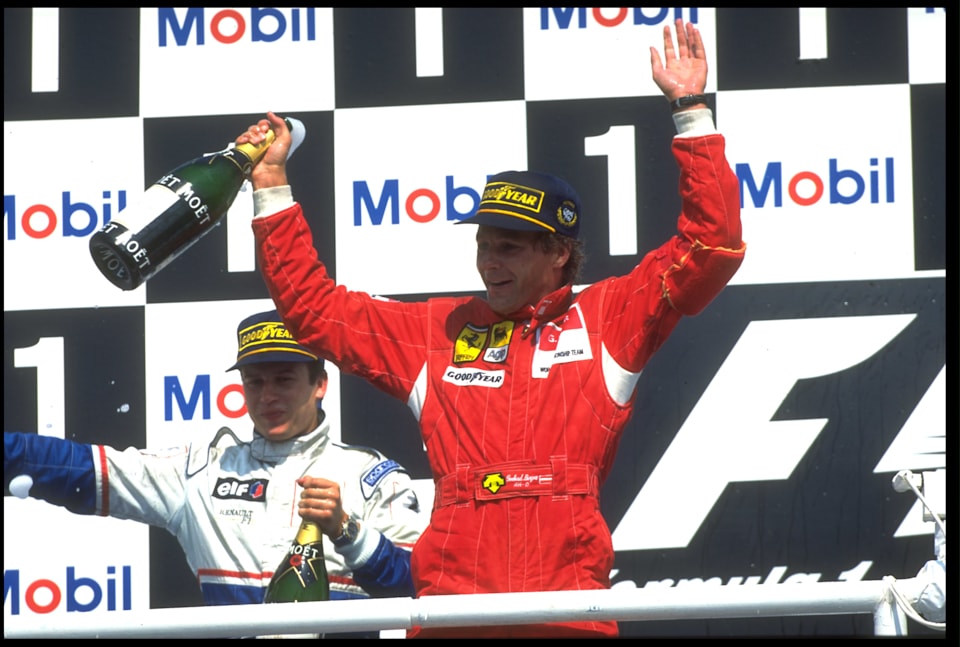
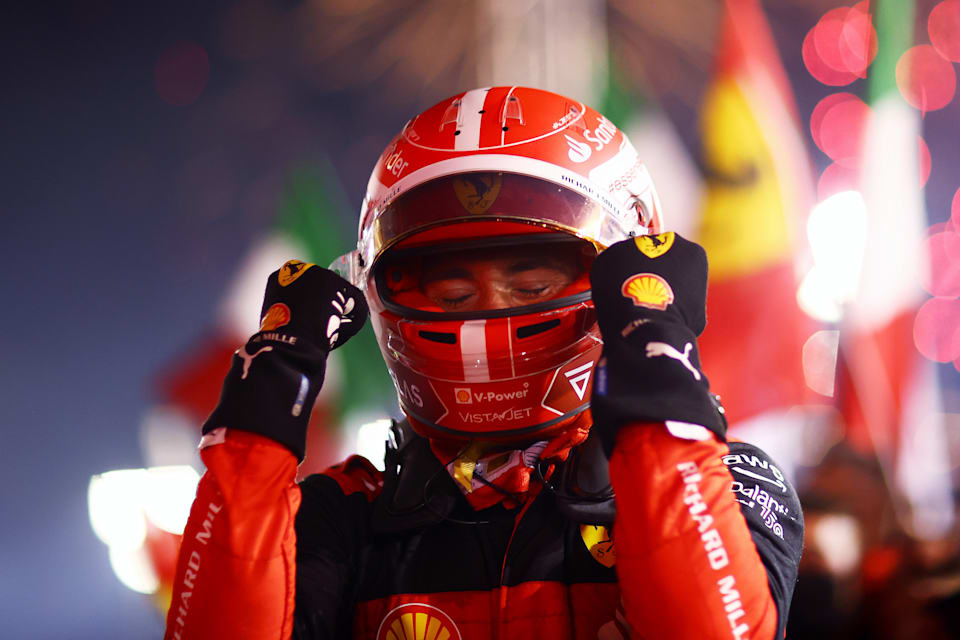
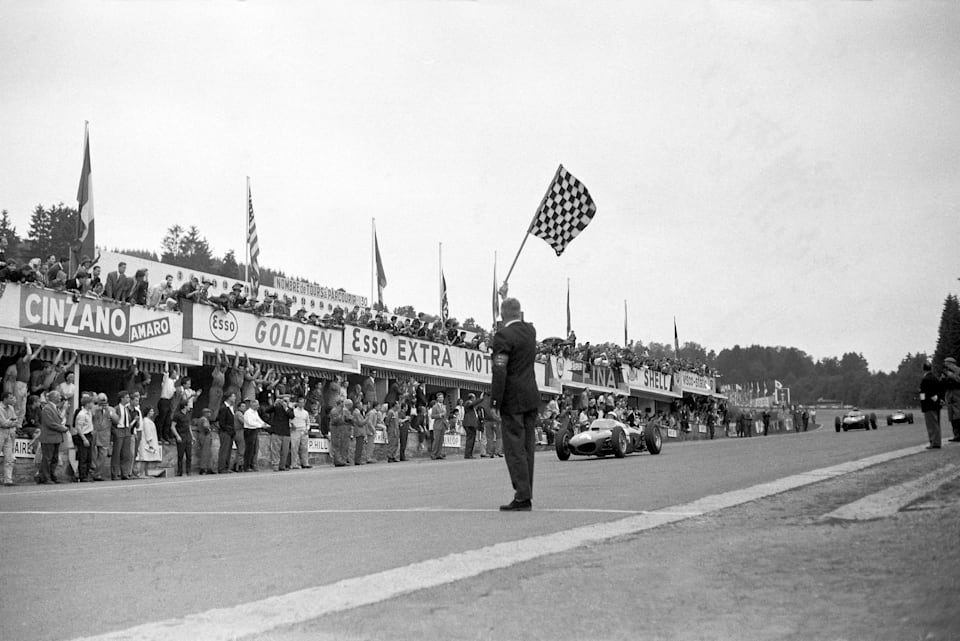
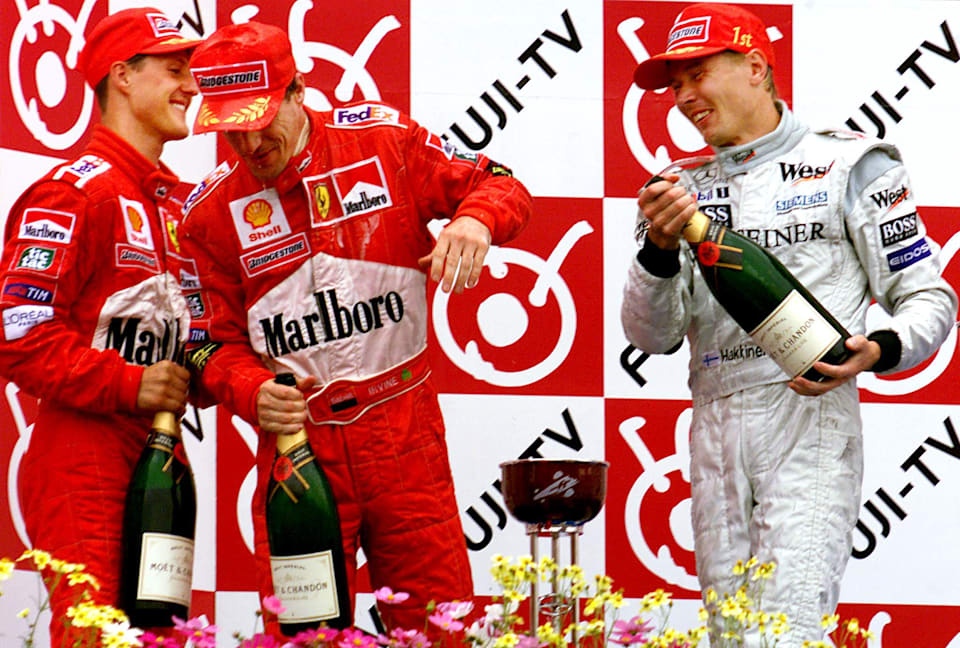

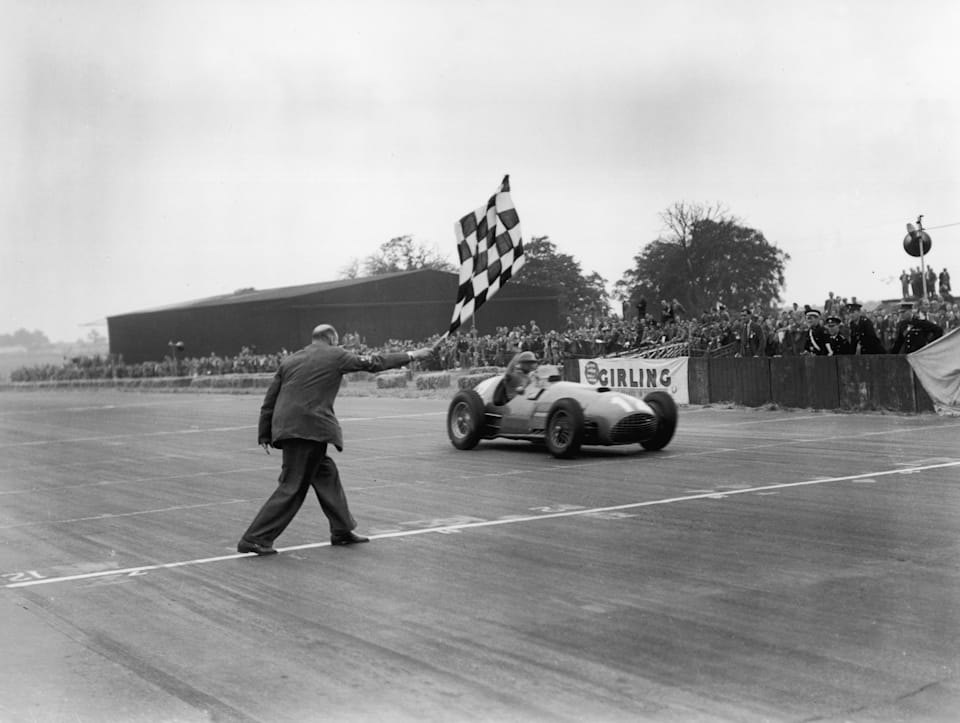
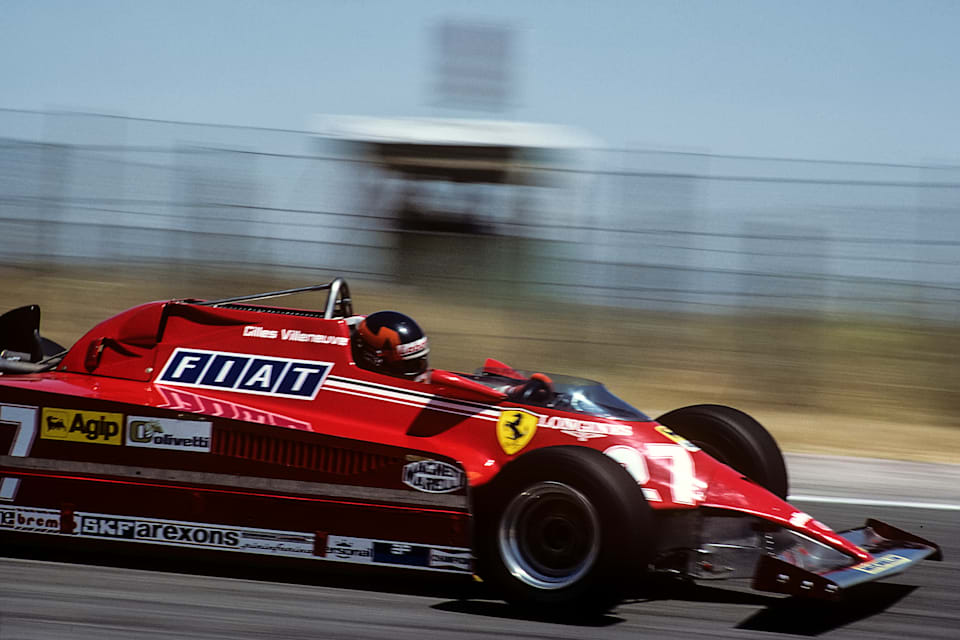
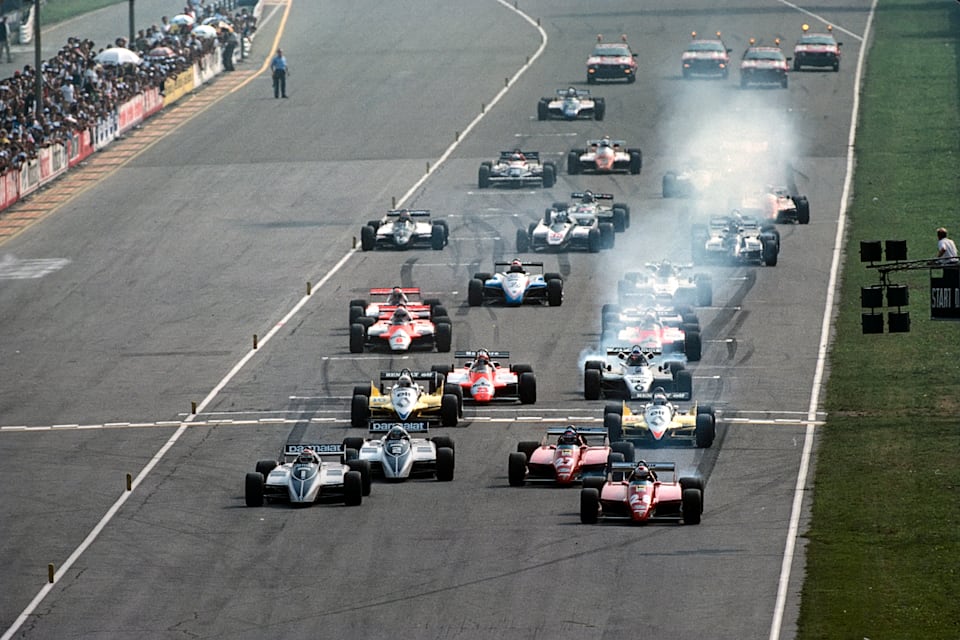

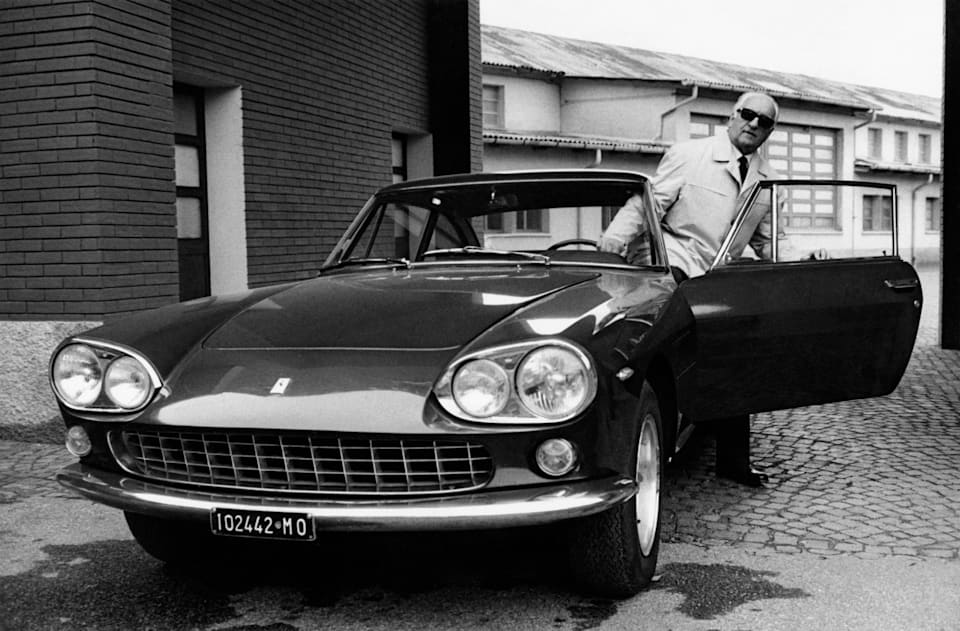
.jpeg)

Comments
Post a Comment